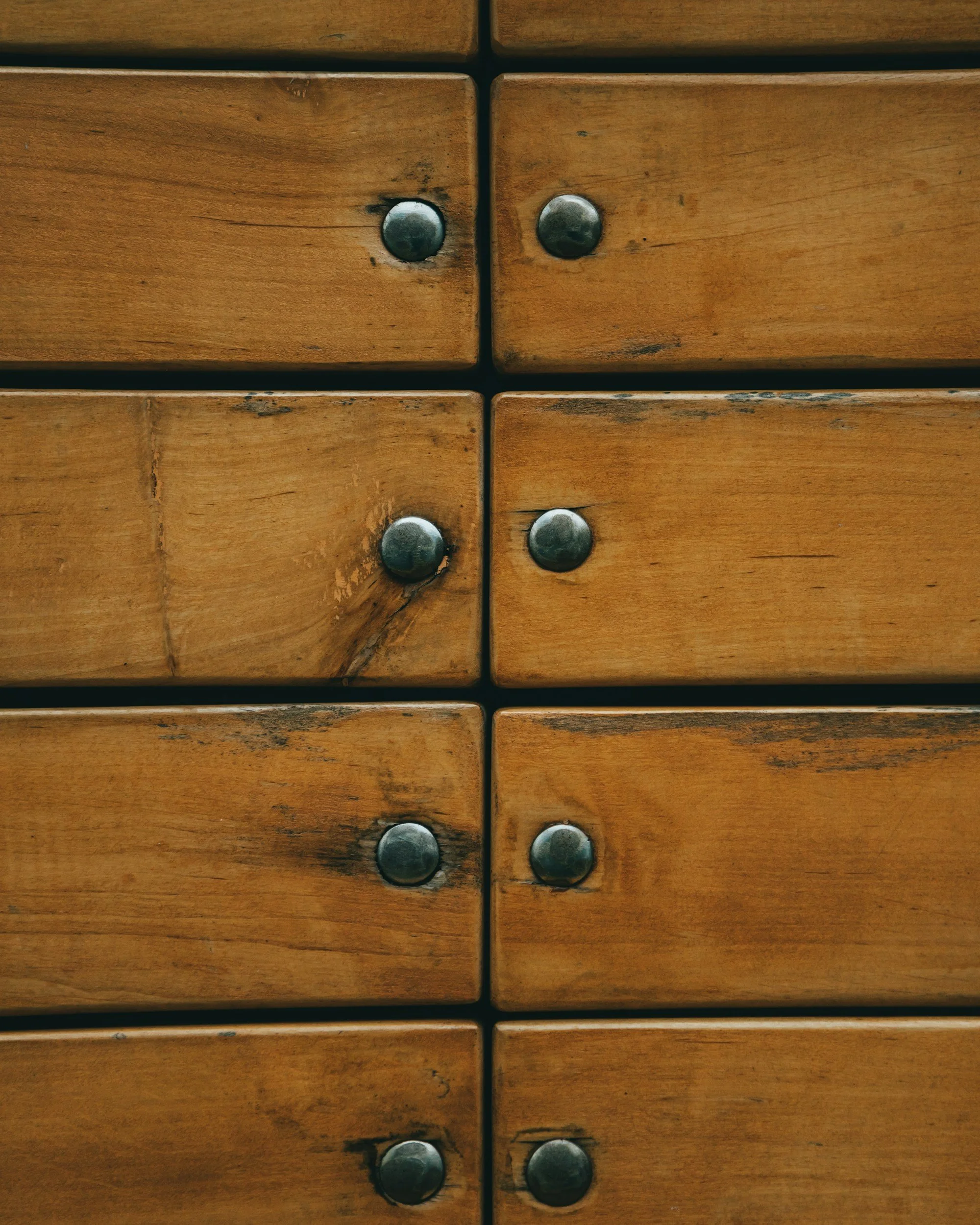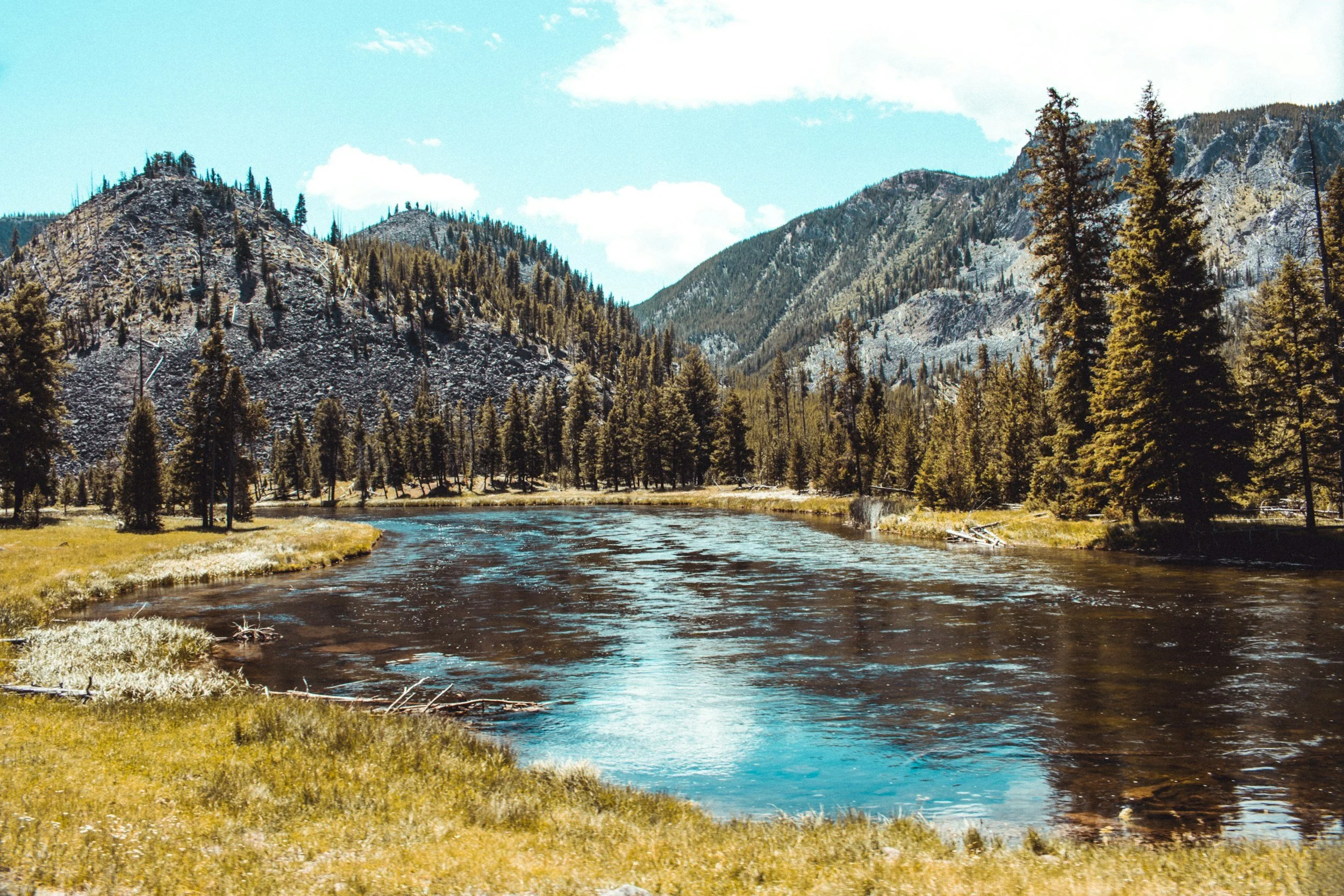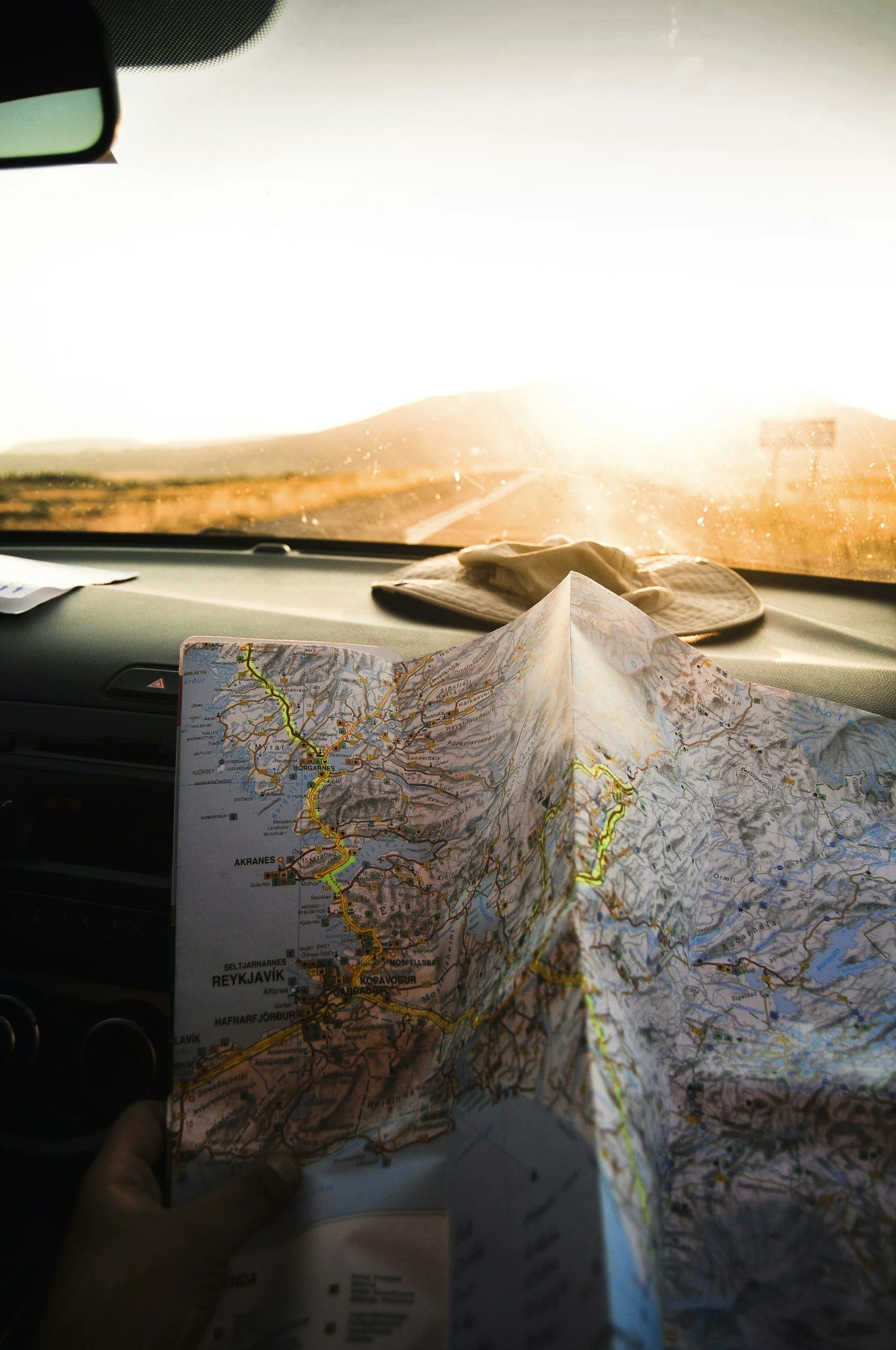How Do You Like Your Blue-Eyed Girl?
A busload of twenty-nine coughing tourists edges toward Laugarvatn, Iceland in January. The sky resembles misery. My seatmate films the black and white scenery out the window and smokes at stops. It’s no Ibiza, he says, showing off his camerawork, a blur of nothing in particular.
The streets are gravely ice, the houses simple, the landscape like spilled glue. There are roughly one hundred and fifty-nine people living here, a boarding school for teens, a gas station which doubles as a quick stop grocery store, a restaurant, a gym, and a modern spa with mineral soaking pools. This is where they leave me.
I pack into a different vehicle with spikes on its tires and go into this silent film to a house smelling faintly of oil and snowy wood. It’s a two minute drive through town, shorter than the time it took me to get the arrangement of vowels and consonants for Laugarvatn through Google, which it wanted to rename many things, including Laugh Fart.
When I accepted this months-long writing residency, it was eighty degrees at home and the heat inside my menopausal frame was reaching a boiling point. I relished the possibility of being anything besides a mother who drives a sensible sedan and whose daily adventures can be done in ballet flats. I sat on cold tile, put ice cubes in my drink, and flipped through the few online images of this town. Mossy hills, a cobalt lake, references to nearby waterfalls, geysers, hiking, all of which are inaccessible or tough to get to in winter. I would not have a car. I didn’t think about that. Because I am night sweats and mood swings and pieces of hair falling, foggy, achy, achy, achy, and totally unpredictable. Like a teenager. Except something is ending, not beginning. No one wants to hear it. Or see it. Including me.
I am a pair of dulling blue eyes on a body ticking time. And it’s hot.
Escaping to the coldest place, at the coldest time of year, sounded like a good idea.
Days before departure, the airline loses me in its system.
No record at all?
No, ma’am. What’s your name again? It’s dead quiet in the background, which is weird because it’s the call center. It gives me the impression that I’m the only one.
Like I don’t exist? I say.
That is correct.
Nearly everyday I go to the grocery store, where I face the same checker who never looks up. It’s just how interesting I think I’ve become.
*
Warped plastic-y streets slide under my feet as I cross the two lane road to the gas station. I’m wearing crampons to keep me on earth and I can’t imagine what it would be like to walk without them. The terrain to the south is oddly plumb and treeless, with the ability to see so far ahead. I can follow the roads until they bend at the horizon line or around a far off mountain. And yet I can’t reach any other place because I only have my feet, which are not enough to get me very far. I consider how this feels familiar—the inability to escape. Even in places I want to be, the idea that I can’t leave reminds me of this bird I once found inside the gym. For days he dropped down from the beams in a swoop of hope, zipping toward begonias and zinnias only to meet a plate glass window. There are some places we can’t get beyond.
I arrive at the gas station as a young man in jeans, no crampons, skates through attaching the gas nozzle to his car. In the passenger seat is a girl adjusting her beanie in the rear view mirror. I wonder what she sees. When I look in mine, I wish I’d worn more sunscreen, fought harder for jobs, stretched, traveled, held more sleeping babies to my collarbone, turned down the music, told my mother in law thank you for the pot roast even though I didn’t like it, complained way less about my period. She takes a selfie with bow lips.
I feel cold on my teeth.
As they pull away the sun is setting behind them in an array of orange — tangerine, almond skin, cantaloupe. I trace the lines of their tires departing and want to run in their tracks, climb inside and turn the music loud. But I know it wouldn’t be any different. Even if we ended up thirty kilometers into the Highlands, I would still feel like the bird.
I head into the grocery store and buy bacon, Top Ramen, yogurt and a mango. The cashier is my age, with her mouth mirroring bleakness. She is stacking yogurt into the fridge, her eyes never peeling from the depths of the icebox. When I check out, she comes and silently takes my crampons from the basket and holds them while I pack my bag. I want to hug her.
I slip-walk through the campground next door to the residency. It’s full of abandoned, legless plastic chairs and bent barbecue tools.
I review my ingredients. None of them make any sense. I fry the bacon, which is rancid; settle for Top Ramen. I sleep with my hands crossed over my chest like I am dead.
*
Night wakes me, even though it’s morning. I drape an afghan across my lap and knit my fingers like a seeking kitten. I stare into a dark window reflecting headlights from cars passing through.
Instead of writing, I search for ways to get out of here. How does one travel to a place and then only think about going somewhere else? I wonder about what made the people in the campsite abort mission so quickly. I find a taxi service, but when I click on the contact page it opens to a picture of a naked woman with her vagina center screen. Have a sexy time in Reykjavik, it reads.
I shut my laptop and take to the lake, through the four streets arranged like graph paper. It is mostly dark, but then the emerging sun and clouds become an ocean of light. And I see.
In each open yard there are tiny, clear plastic, pitch-roofed garden houses with wicker furniture and lights. The windows of every house frame multi-layered paper snowflakes; stick wreaths in ribbons. They embrace winter, accept it and decorate it.
I walk in someone else’s footsteps to a spongy field of clear ice and snow. At the shore, the lake bends as the wing of a drafting bird. It leads to an icy mountain that dips into a V-shaped valley, with another low hill rising banded in birch trees. Everything is dressed in white. In all the plainness, I zoom in on how one place connects to another. I hadn’t noticed yesterday, because my gaze was busy to the south or at my feet.
The lake is half frozen. Birds float in the pieces that aren’t. The wind laps at their backs. I come to a black sand beach in peaks of thinly gathered snow. There are canoes turned right side up, filled with ice. A bubbling cauldron at the edge of the lake is rimmed in rocks, steaming.
At a picnic table like a flat mirror I pick up a polished black stone and sit.
The edge of black sand under a blanket of snow.
Grasses growing through ice. They poke like feathers.
Furry reeds float in the lake’s shallows.
The stone bares a smooth familiarity—my late father’s thumb on ee cummings. He used to sit with hawks crossing the canyon beyond his office and read in a deep voice. Listen, he said, with dramatic pause, his prosthetic leg stretching toward me.
Buffalo Bill ’s
defunct
who used to
ride a watersmooth-silver
Stallion
and break onetwothreefourfive pigeonsjustlikethat
Jesus
he was a handsome man
and what i want to know is
how do you like your blue-eyed boy
Mister Death
I listened and told him it was too dark for me. And Buffalo Bill sounded like a star who got old. It was far away; I was young. My dad saw it as testament to the strength of structure and the positioning of lines in poetry. See, in just a few steps death becomes the main character. It’s beautiful, he said. As I spin the rock and look at the lake, I consider Buffalo Bill’s arc. Regardless of how he lived, the poem celebrates his existence. Ride / break / justlikethat / Jesus / handsome. He is action, capable, confident, and, man, handsome. Even in the past tense, he’s current. Perhaps all parts of life, no matter the weight, are important. Chaotic, fast, slow, hard to read, hanging—it’s all there. I just have to see it, accept it. The rock is warm in my fingers. I find it promising that there are places the cold can’t touch.
*
The sun lifts its head as I reach the spa on the fringe of the lake. Low slung and meant to blend, the building is simple modernist with a cafe walled in glass overlooking a collection of wooden saunas, mineral soaking baths of various degrees and the lake. I tuck frozen strands of hair into my hat and go inside.
The spa sells a dense rye bread baked geo-thermally at the lake’s shore. They build volcanoes in the ashen soil and bury steel containers of dough wrapped in plastic. I watch them reveal a column of bread, considering how it feels to change your composition, to be bitter rye flour and milk in a dark hole of sulfur and bubbling water, and come out looking like a top hat made of chocolate. I buy a wedge.
The spa receptionist says to keep it warm, otherwise it will get hard. As he’s telling me this, a group adventures into the lake. Their bodies disappear into water, their heads floating, like ducks. They come out, hot red, breath visible. I’m on the other side of a floor to ceiling window. I’m in two gloves, three jackets, two pairs of pants and sensible hiking shoes. Sweating. They are barefoot, nearly naked. It’s fifteen degrees Fahrenheit. It’s as if we are in two different forecasts, only feet separating us.
I slip the loaf into a jacket pocket alongside my ribs. I inquire about a membership.
*
In a moment, the rain piles on and undresses everything. Water runs in falls over the mountain behind the house and in streams across the highway. The earth is a rusty brown, striped in white, now. Above, the sky is on the edge of either sunshine or a storm. Today it will be rain, ice, snow, double rainbow, and sleet. In between, there are quick chapters of daylight. It is chaos. Sometimes places can know something about you, even if you know nothing about them.
The Fontana Spa is open daily until 9 p.m. I find this consistency comforting.
I arrive at 3:30 p.m. as the lake appears to be exhaling, with the sun so low aubergine light traps itself between the passing clouds. It reminds me of the dessert, Meringue in Creme Anglaise.
The pools vary in degrees from hot to barely warm. I recline in tepid water just deep enough to cover my supine figure. I press my back against rounded lava rocks with steaming water at my shoulders. I sit in a sauna sweating in other people’s adventures. One tour bus snowmobiled, another climbed glaciers, some hiked through ombre volcanic tubes. Everyone seems to be going places and doing things.
I stay quiet. It feels like I’m the rye bread being baked 100 yards from here. It is delicious, especially with the Icelandic butter I found in the fridge. What if they never unearthed the loaves? Will I silently disappear into this place, let this change in life bury me in defunct?
I see a man my age walk straight into the lake. A clock in the sauna ticks minutes. After five he parades out, smiling. Buffalo Bill at his best.
I leave the sauna, my feet sticking to the icy boardwalk, down the stairs, into the lake. With each step my breath finds less space inside my body until my lungs are in my forehead and the water is at my waist. Everything inside goes resistant. But the bed of the lake is soft. I squish it between my toes and stay. For a second, every detail, each molecule of water, each line of light glowing from towns across the lake, each flake of snow laid upon the boardwalk, snaps in my eardrums. I think of the blurry video my seatmate shot and how a still picture captures so much more.
I last thirty seconds. When I enter the deep pool, my skin prickles as if stabbed by pins. But I can inhale to all the places I didn’t know could receive breath.
I lie back, my arms and legs the points of a jasmine flower floating.
*
I see children in bright blue, green, yellow snow suits pulled on tabagons. I hike the mountain just after a snow and find small footprints leading to a stream. I search up pictures of its tracks and decide it’s an arctic fox, one of the few animals whose coats turn a different shade, from white to brown, when they shed in spring.
My skin peels from so much plunging.
I go to the windowless community gym full of teenagers and Venezuelan women seeking asylum in Iceland. They play Spanish hip hop and lift impossible weights. They ask me if I’m okay with the music. I tell them to turn it up.
During the day, I sit at my window with a laptop. Tour buses pass. Warm air and rain clear away the ice and sleet. I consider going outside, but nothing in my body wants to move. I put my fingers on the keys, lose myself inside a book, and stare at the canvasses of a fellow artist who paints glaciers, landscapes that appear restless and peaceful in vibrant lines, layers of white, aching blue, and folded and creased gray. I consider how complicated places can be. And how it feels to accept this and turn it into something productive and pretty. I consider how much of this is perspective, a choice.
When the sun moves across the back of the lake, I go to the spa.
I trudge through ankle deep slush, ice skating rink streets, fresh powder that feels like walking on styrofoam, rainy sidewalks, and frosted asphalt. Sometimes I wear four jackets. Sometimes two. I always wear my crampons, and stop paying attention to who does and doesn’t. I stop thinking about the terrain and how hard it is. I just go. Like Buffalo Bill.
By the time it’s dark, I’m right side up in the deep pool and counting shooting stars. Four. Six. Eight. I lose track.
I write on my phone in a plastic bag, drying out in the sauna. I write on the back of my lids in the dark. My eyes learn to open wider, to adjust to less light, to hold what there is.
I wonder how much brilliance there is at home. If I look under my mattress, inside the sidewalk, at the back of the freezer, at the bottom of lunchboxes and backpacks, between hot flashes will I find light?
When I leave, the heat stays in my body for the half mile home and then in bed, when the hill glows.
I watch streams of Aurora stretch across the sky. If I put my phone up, the ribbons turn a lichen green, pear, parakeet, lime and sometimes, on the edges, magenta. They whisper, meander and disappear.
I travel to the edges of the campground in my socks and pajamas, stand under a hole in the sky, an oblong passage shaped by where the green lines aren’t. It feels like I’ve reached a portal to beyond the Milky Way. Perhaps the people from the campground went up, not out.
*
Some days the lake water is frozen solid. Some days it blows in the wind. Some mornings there are pieces of ice rocks on top of the surface, as if the water grew tired of being pushed around and just froze to fight back.
Snow, sleet, thick flakes that splatter and spread. I walk and contemplate the shape of weather and how the terrain copes. It just does, without thinking too much.
It’s a Sunday at four p.m. Quiet and dark. When I enter, the spa receptionist waves me through without asking for my card. He says my name.
It catches me. What a thing to hear your name. I consider the shape of my existence in a space, elongating as the Aurora.
In the hot tub, I hear about fissure diving, the blackness of a sandy beach outside Selfoss, what it’s like to see the Northern Lights from the top of a mountain.
A couple from England thinks it's warmer than they expected. But more difficult to get around. Another couple with a baby try a glacier tour and are torn apart by the wind. Miserable.
Thingvellir Park is a shrug. No adjectives to describe it. Not blank or white or snowy or plain. Just there.
Gulfoss Falls is astonishing. But, like a twenty minute stop, tops. The clarity of the water in Silfra Fissure makes snorkeling like hang gliding, but your face will freeze.
On a cloudy day, a snowy day, a windy day, the land is blah. When it’s sunny, though, and not cold, it’s magic.
There are too many waterfalls, not enough snow, and Mother Nature is stingy and mean.
I collect all of Iceland in my armpits and the back of knees; cuddle her so she knows at least I understand. She’s complicated and that’s okay.
Where is the Aurora? one couple asks. Behind them, I can see it passing between the V in the hills. It’s hazy and faint. It looks more like a line of fog, but there’s a subtlety in their movement that you have to know. I decide they’ll figure it out on their own.
I hear about an ice cream shop, a waterfall like a blue silk dress blowing. It’s all just down the road, like so close. But not so close, just barely longer than a walk. It’s just right there.
Everyone points in a direction outside of here, like the tip of their finger is a better destination.
Nowhere else but here? they ask.
Nowhere. That word is getting harder to say. Responses form in my head. I want to reply: I like it here. There’s actually a lot to admire. Before I can talk, they disappear into warmer water, the dressing room, into the arms of another.
In darkness, I go to the lake, and plunge to my hips, to my ribs, to my breast, to my armpits, to my hairline. I last one minute. I break ice with my heel. I feel stronger and yet I have barely walked a mile daily for three weeks.
A duck comes within inches of me, as if we are kin.
*
It’s my last week. Inside the sauna, the panels of wood are warm my back. A group of guys from Boston asks if I live here. I find something in my chest pressing to say yes.
We sit in the hot tub, our hair freezing while I explain what it’s like. In the dark, I point to where the famous volcano Hekla rises and to Reykholt, the town beaming in orange light across the lake. I tell them how Laugvartn looks covered in snow and Northern Lights. Some days you can’t see outside and it’s just biting cold in your tear ducts. Some days the sky is every color, even ones you can’t imagine. They ask what else I’ve seen.
I point to the hill glowing white behind the town. I point to the rim of the lake. I point to the campground under darkness and snow. Then I point to the sky which is draped in night and marbled clouds.
You haven’t been to the cattle ranch? Silfra? The South Coast? A black sand beach?
No.
They shake their heads. It looks like pity.
After they leave, I steep in the deep pool; my body in all directions. The sky is all mine, each crease of the universe onyx, obsidian, fox gray, rock. Each star a different shade of pearl flickering from behind clouds. The last three lines of Buffalo Bill come to mind. The ending is a single shiny thing in darkness. It’s what I hear. How do you like your blue-eyed boy?
What follows is dramatic, stunning sparsity, like my dad said. Maybe all those spaces between lines, all that brevity, that change of pace allows you to see things you didn’t before.
I walk home, my hair wet and tangling in a windstorm that pushes me backward. It takes my breath away, but my crampons keep me stable. I close my eyes and snap a picture of my existence. I imagine it’s a pitch gravel photograph, loud with scraping wind, my figure center stage. My skin is pale lines, each pleat catching the smallness of starlight. My tangled hair forms a crown, each strand coated in ice crystals. Nesting inside, a pair of bright blue eyes.
-Jennifer Christgau-Aquino
Jennifer Christgau-Aquino is a fiction writer, poet and journalist who writes from her Northern California home. Her work has appeared in The Dime Show Review, BrainChild, Ruminate and WildRoof Journal, among others. She’s a 2024 Gulkistan resident and a former Craigardan resident. She holds an MFA in fiction writing and poetry, and is an adjunct professor of media studies.




















